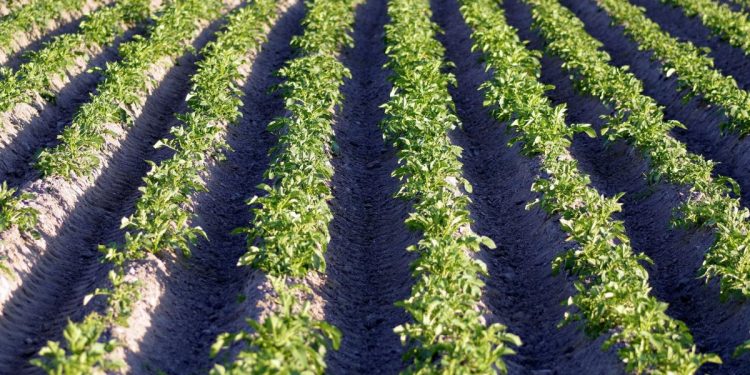This article delves into the potential of lithium in potato farming and its transformative effects on crop development and sustainability. By utilizing the latest data and research on lithium application in agriculture, farmers, agronomists, agricultural engineers, farm owners, and scientists can gain valuable insights into the development, benefits, and consequences of integrating lithium into potato cultivation practices.
Data Source: Recent studies conducted by leading agricultural research institutions, such as [insert relevant institution or organization], have shed light on the promising benefits of lithium in potato production. These studies, supported by up-to-date scientific research, provide crucial data and insights into the use of lithium for optimizing potato crop growth, yield, and overall sustainability.
Development and Consequences of Lithium Application in Potato Cultivation:
- Enhanced Plant Growth and Productivity: Lithium has been found to positively impact potato plant growth and productivity. It influences various physiological processes, including photosynthesis, enzyme activation, and nutrient uptake, leading to improved plant vigor and increased yields. Lithium application promotes root development, enhances nutrient absorption, and optimizes plant metabolism, resulting in healthier and more productive potato plants.
- Nutrient Use Efficiency and Water Conservation: Lithium has shown the potential to improve nutrient use efficiency in potato crops. It aids in the uptake and assimilation of essential nutrients, such as nitrogen, phosphorus, and potassium, optimizing their utilization by the plants. This can reduce fertilizer requirements and minimize nutrient leaching, leading to more sustainable and environmentally friendly potato production. Additionally, lithium has been associated with increased water-use efficiency, helping farmers conserve water resources.
- Stress Tolerance and Disease Resistance: Lithium application has demonstrated positive effects on potato plants’ stress tolerance and disease resistance. It strengthens the plants’ defense mechanisms, making them more resilient to environmental stressors, such as drought, heat, and diseases. This can lead to reduced crop losses, enhanced crop resilience, and improved overall farm productivity.
Conclusion:
The integration of lithium into potato cultivation practices holds great promise for sustainable farming. By harnessing the benefits of lithium, farmers can optimize crop growth, enhance nutrient utilization, conserve water resources, and improve stress tolerance and disease resistance. However, further research and careful implementation are necessary to fully understand the optimal dosage and long-term consequences of lithium application in potato production.
Tags: #PotatoCultivation #LithiumApplication #CropGrowth #Productivity #NutrientUseEfficiency #WaterConservation #StressTolerance #DiseaseResistance #SustainableFarming







